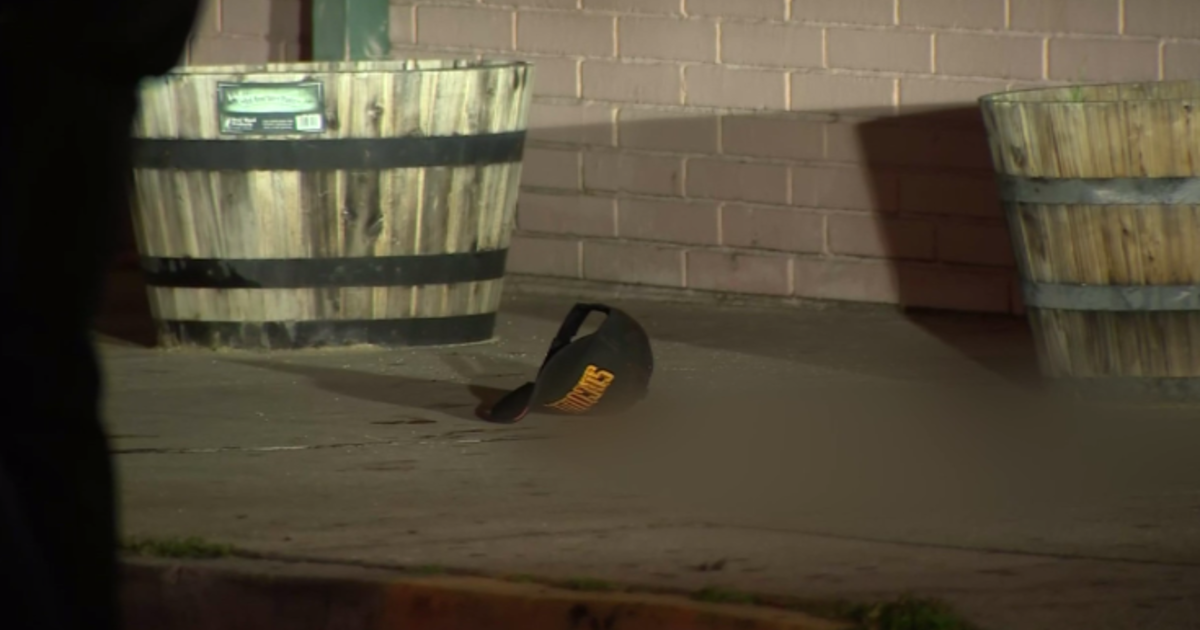California EDD Fraud Payments Total At Least $20 Billion
SACRAMENTO (CBSLA/AP) — California paid out at least $20 billion in fraudulent unemployment benefits -- less than originally feared, but an amount that still represents more than 11% of all benefits that have been paid since the pandemic began.
In an oversight hearing Monday, state officials blamed nearly all of that fraud on the hurried expansion of unemployment benefits by Congress that let people who were self-employed get weekly checks from the government with few safeguards to stop people from getting benefits who were not eligible to receive them.
In California, the fraud was so widespread that state officials OK'd at least $810 million in benefits in the names of people who were in prison, including dozens of infamous killers on death row. Fraudulent claims came in across the nation and from criminals in other countries, while U.S. Postal Service workers, prison guards, and EDD employees were arrested on suspicion of filing false claims.
The onslaught of fraudulent claims also prompted Bank of America to freeze EDD accounts that were suspected of fraud, cutting off funds to people with legitimate claims.
COMPLETE COVERAGE: EDD Fraud
But Gov. Gavin Newsom's administration on Monday sought to assure state lawmakers that the fraud pipeline in California has been closed. Employment Development Department Director Rita Saenz said the state has implemented new identity verification software that, along with other preventative measures, has stopped an estimated $120 billion in fraud attempts.
Saenz told lawmakers on Monday during an oversight hearing that "2020 was an anomaly, a criminal assault on the unemployment insurance program across the country."
"We closed the door to that type of fraud last year," she said.
In January, state officials estimated the fraud could be as high as $31 billion. But Monday, state officials revised that down to $20 billion. The Newsom administration has hired former U.S. Attorney McGregor Scott to help prosecute scammers, with the department saying Monday investigations are ongoing.
But the department is still plagued with other problems. When people apply for unemployment benefits, sometimes the information they file with the state is different than what their former employer filed. When this happens, state officials have to interview these people to resolve those issues.
But people are having to wait up to six months for these interviews. Saenz called this delay "unacceptable." But she said the state has a new policy that pays people their benefits while they wait, as long as they pass the state's fraud filters. Saenz said about half of the people waiting for interviews are being paid.
"Things are not improving fast enough for some. There are still some challenges ahead," she said.
California has paid out more than $178 billion in unemployment benefits since the start of the pandemic based on 25.5 million total claims. Saenz said that's four times as much as the combined worst two years of the Great Recession a decade ago.
The sheer volume of claims overwhelmed the department, creating a massive backlog and making it nearly impossible to get an answer when people called the agency's call centers. In January, a state audit blasted the department for doing little to stop the fraud for the first four months of the pandemic, blaming the Newsom administration for "significant missteps and inaction."
Monday, the auditor's office said the department had completed 13 of its 21 recommendations so far.
"EDD has made notable progress in addressing areas of concern we found during our audits. But significant steps still need to be taken to address areas of risk," said Bob Harris, who managed the department's audit.
Saenz told lawmakers the department had not missed any of the auditor's deadlines to make changes. She said the department plans to finish hiring people for its newly formed fraud investigation unit by the end of November.
But other changes will take longer. The department is working on a new system that will deposit unemployment benefits directly to people's bank accounts instead of sending them check or debit card in the mail, which is more susceptible to fraud. But Saenz said this will take a few years to implement.
The pandemic ushered in widespread fraud at unemployment agencies across the country, with at least $87 billion in fraudulent payments approved by states, according to a June report from the inspector general's office at the U.S. Department of Labor. In Arizona alone, state officials said scammers pocketed nearly 30% of all its unemployment benefit payments.
(© Copyright 2021 CBS Broadcasting Inc. All Rights Reserved. The Associated Press contributed to this report.)



